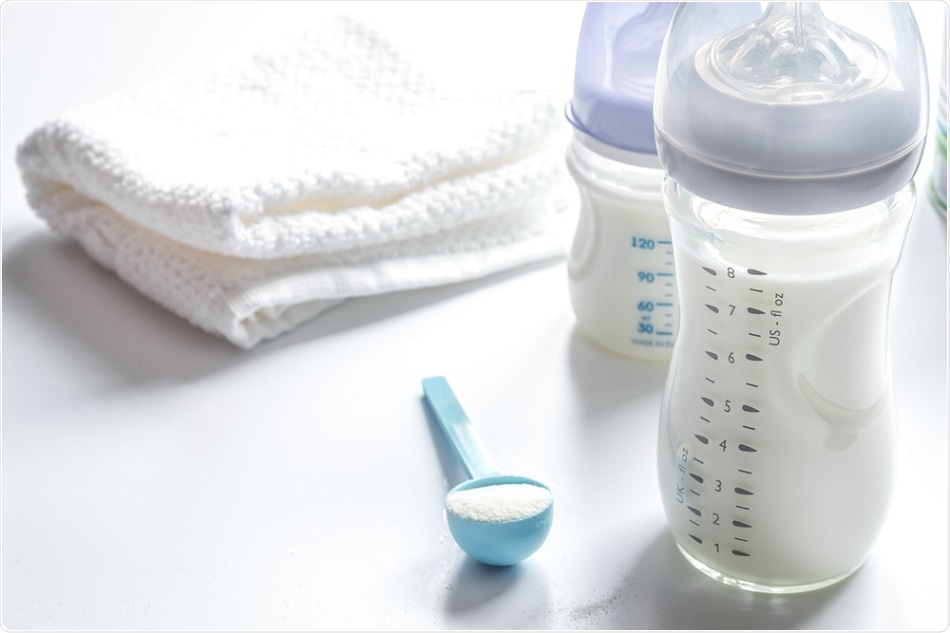At last, the pendulum has swung back to accepting breastfeeding as the norm in infant feeding. Interestingly, this has come about not because of recognition of its natural role in infant care, but because of the revelation of how much it costs the earth to produce “unnecessary formula” for babies and young children, according to a new study published in the British Medical Journal.
 279photo Studio | Shutterstock
279photo Studio | Shutterstock
Environmental impact of formula
In the current study, researchers show that switching to breastfeeding instead for the first six months of life could save anywhere from 95-153 kg CO2 equivalents for each baby. Thus, helping mothers in the UK alone to exclusively breastfeed their babies would reduce carbon emissions equivalent to reducing road traffic by 50,000 to 77,500 cars each year. The need of the hour is, therefore, to initiate government action to make breastfeeding a social commitment, all over the world, in tune with other technologies and steps taken to reduce the human-made carbon footprint in every area.
Dairy and meat production drive the major chunk of the food industry’s 30% contribution to global greenhouse gases, according to this study. Powdered cows’ milk is the foundation of most infant formulas. Cows and other livestock produce large amounts of methane, second only to the oil and gas industry. Methane is a major greenhouse gas, 30 times more effective at entrapping heat radiation from the sun within the earth’s atmosphere. Also, up to 4700 liters of water are needed to produce just a kilogram of powdered cow’s milk – an enormous water footprint.
And not just that: to make safe milk from the formula, the water used must be at least 70°C in temperature, requiring heating. This pushes up the energy use to about that amount that would be needed to charge 200 million smartphones each year. Then, the nutritional content must be boosted by adding various vegetable oils: palm, rapeseed, coconut, or sunflower oil. Fish oils for essential fatty acids, fungal and algal oils for esoteric nutrients, and minerals as well as vitamins, must all be added.
And think of the 550 million infant formula cans, or 86,000 tons of metal and 364,000 tons of paper that landed in the landfill back in 2009 and the production has increased by more than twofold since then. Not to mention the paper and plastic used and wasted at each step in the production of formula, and the need to transport it to far-flung locations.
For instance, formula is produced in only 50 plants worldwide, at the outside, churning out about 4 million tons. But this means that cows’ milk and other ingredients need to be carried to these distant sites and the final product carried back all those hundreds of thousands of miles to the end-consumer – such as China’s import of 180,000 tons of formula mostly from Europe. Additionally, the formula marketing business is worth more than £5bn. These are overlooked in almost all studies so that nobody knows how these aspects affect the environment.
A total of 50% of formula-associated greenhouse gas production is due to the manufacture of follow-on formula, which is not only useless but even a potential source of harm for the child, according to the experts who regulate the practice of infant feeding.
What we can do
This is where breastfeeding comes into its own. Cheap, safe, waste-free and extremely energy-efficient, breastfeeding also preserves the health of both mother and baby. In contrast to the damaging environmental effects of formula feeds, breastfeeding is healthier for the environment and for children, reducing healthcare resources. However, all over the world, only about four out of ten babies are fed exclusively on breast milk until they are six months old.
Country-wise, the UK presents a dismally low rate of breastfeeding and an unfortunately high per capita use of infant formula – and this is even though over 85% of women who are pregnant express their desire to breastfeed.
Why doesn’t this desire translate into action? It could be due to a lack of societal support, according to the researchers. This could include multiple areas. For instance, doctors need to change their attitudes to breastfeeding, encourage expectant women to incorporate it into their post-childbirth plans, and support mothers who find it difficult to breastfeed for various reasons.
Secondly, new mothers need time and space to breastfeed, particularly if they are working. They require better access to properly screened breast milk from healthy donor mothers, stored in a well-run milk bank if supplementation is necessary.
A network of lactational consultants should be ready to support breastfeeding. Moreover, a re-affirmation of the merits and cultural acceptability of breastfeeding must be performed, to make it easier for new mothers to take up breastfeeding. In fact, say the researchers, the UK is consulting the public to drive such an attitude conversion. Calling breastfeeding “an environmental imperative”, they call upon all those interested in improving breastfeeding rates to take advantage of this good opportunity to take action to make this a reality.
The report sums up:
We need to acknowledge that "our house is on fire” and that the next generation requires us to act quickly to reduce carbon footprints in every sphere of life. Breastfeeding is a part of this jigsaw, and urgent investment is needed across the sector.”
Journal reference:
Support for breastfeeding is an environmental imperative. Naomi Joffe, Flic Webster, and Natalie Shenker. BMJ 2019;366:l5646.doi: 10.1136/bmj.l5646.